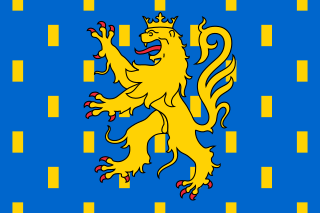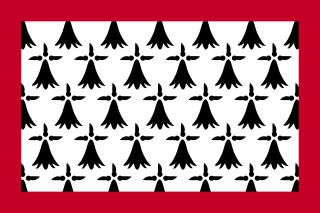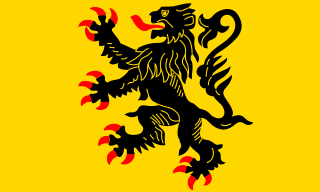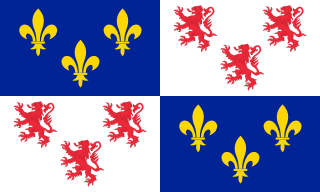 W
WAquitaine, archaic Guyenne or Guienne, is a historical region of southwestern France and a former administrative region of the country. Since 1 January 2016 it has been part of the region of Nouvelle-Aquitaine. It is situated in the far southwest corner of Metropolitan France, along the Atlantic Ocean and the Pyrenees mountain range on the border with Spain. It is composed of the five departments of Dordogne, Lot-et-Garonne, Pyrénées-Atlantiques, Landes and Gironde. In the Middle Ages, Aquitaine was a kingdom and a duchy, whose boundaries fluctuated considerably.
 W
WAuvergne is a former administrative region in central France, comprising the four departments of Allier, Puy-de-Dôme, Cantal and Haute-Loire. Since 1 January 2016, it has been part of the new region Auvergne-Rhône-Alpes.
 W
WBurgundy is a historical territory and former administrative region of east-central France. It is named for the Burgundians, an East Germanic people who moved westwards beyond the Rhine during the late Roman period.
 W
WChampagne-Ardenne is a former administrative region of France, located in the northeast of the country, bordering Belgium. Mostly corresponding to the historic province of Champagne, the region is known for its sparkling white wine of the same name.
 W
WFranche-Comté is a cultural and historical region of eastern France. It is composed of the modern departments of Doubs, Jura, Haute-Saône and the Territoire de Belfort. In 2016, its population was 1,180,397.
 W
WLanguedoc-Roussillon is a former administrative region of France. On 1 January 2016, it joined with the region of Midi-Pyrénées to become Occitanie. It comprised five departments, and borders the other French regions of Provence-Alpes-Côte d'Azur, Rhône-Alpes, Auvergne, Midi-Pyrénées on the one side, and Spain, Andorra and the Mediterranean Sea on the other side. It was the southernmost region of mainland France.
 W
WLimousin is a former administrative region of southwest-central France. On 1 January 2016, it became part of the new administrative region of Nouvelle-Aquitaine. It comprised three departments: Corrèze, Creuse, and Haute-Vienne.
 W
WLower Normandy is a former administrative region of France. On 1 January 2016, Lower and Upper Normandy merged becoming one region called Normandy.
 W
WMidi-Pyrénées is a former administrative region of France. Since 1 January 2016, it has been part of the new region Occitanie. It was the largest region of Metropolitan France by area, larger than the Netherlands or Denmark.
 W
WNord-Pas-de-Calais is a former administrative region of France. Since 1 January 2016, it has been part of the new region Hauts-de-France. It consisted of the departments of Nord and Pas-de-Calais. Nord-Pas-de-Calais borders the English Channel (west), the North Sea (northwest), Belgium and Picardy (south). The majority of the region was once part of the historical (Southern) Netherlands, but gradually became part of France between 1477 and 1678, particularly during the reign of king Louis XIV. The historical French provinces that preceded Nord-Pas-de-Calais are Artois, French Flanders, French Hainaut and (partially) Picardy. These provincial designations are still frequently used by the inhabitants.
 W
WThe Regional Council of Picardy was the deliberative assembly of the former French region of Picardy, a decentralized territorial community. Its headquarters were in Amiens and it was headed last by Claude Gewerc (PS) between March 28, 2004 and December 31, 2015.
 W
WPicardy is a historical territory and a former administrative region of France. Since 1 January 2016, it has been part of the new region of Hauts-de-France. It is located in the northern part of France.
 W
WPoitou-Charentes is a former administrative region on the southwest coast of France. It is part of the new region Nouvelle-Aquitaine. It comprises four departments: Charente, Charente-Maritime, Deux-Sèvres and Vienne. Historical provinces are Angoumois, Aunis, Saintonge and Poitou.
 W
WRhône-Alpes was an administrative region of France. Since 1 January 2016, it is part of the new region Auvergne-Rhône-Alpes. It is located on the eastern border of the country, towards the south. The region was named after the Rhône and the Alps mountain range. Its capital, Lyon, is the second-largest metropolitan area in France after Paris. Rhône-Alpes has the sixth-largest economy of any European region.
 W
WUpper Normandy is a former administrative region of France. On 1 January 2016, Upper and Lower Normandy merged becoming one region called Normandy.